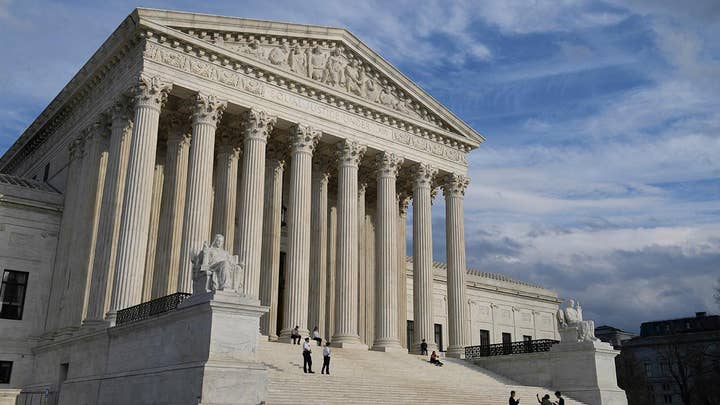Abortion deeply divides Americans. The topic can hardly be raised, without eliciting emotional responses against and for. Since Roe v. Wade, a 1973 Supreme Court decision barring states from restricting abortion, the issue has become overtly political. Now, something new is afoot. The issue seems headed for the Supreme Court – again.
In recent months, eight states – Alabama, Georgia, Kentucky, Mississippi, Missouri, Ohio, Arkansas, and Utah – passed laws limiting or banning abortion (with narrow exceptions, including danger to the mother’s health, incest and rape), while two others – New York and Virginia – pushed the opposite direction, liberalizing abortion to allow termination of a fetus at or near birth.
New state restrictions on abortion challenge Roe v. Wade’s basic legal reasoning. The reasoning has been chipped away over time. In 1989, the Supreme Court heard Webster v. Reproductive Health Services. That case considered restrictive Missouri legislation with a preamble saying “life … begins at conception,” barring public employees from performing abortions, and mandating “viability” tests after the 20th week of pregnancy. A 5-4 Court held that Missouri’s law did not “unconstitutionally infringe” privacy or equal protection guarantees. That was chip one.
HUNDREDS PROTEST ALABAMA ABORTION BAN: 'MY BODY, MY CHOICE!'
A second chip occurred in Planned Parenthood v. Casey, in 1992. Roe justified protecting abortion by dividing pregnancy into trimesters. During the first, a mother’s health was no more endangered by abortion than proceeding to term, so abortion was allowed. In the second, abortion could be restricted only to protect the mother. In the third, since a fetus was viable, the state could restrict abortion to protect the child. Casey made a big change: A fractured Court, reviewing Pennsylvania law, upheld Roe in part – but said everything turned on “viability” now, not trimesters.
A third chip from Roe occurred in Gonzales v. Carhart, in 2007. In that case, the Supreme Court upheld a state ban on partial-birth abortions, the first ban upheld since Roe.
What is now afoot is different. The eight restricting states are challenging Roe’s underlying legal premise, that states are constitutionally required to permit access to abortions, or conversely that restricting abortion (at least after a heartbeat is discernible) is not permissible.
All this is just a long way of saying, the debate over whether abortions are constitutionally protected or can be curtailed by states, is back. Likely, one of the eight laws will end up before the Supreme Court. We may, as a result, have a new legal standard in the near future.
Notably, while Roe created a new standard in 1973, that standard whipsawed 46 states into abandoning anti-abortion laws. We may be in for a similar change, although courts must consider consistency and predictability, or stare decisis, as part of their legal review.
The issue is certainly churning waters. Parts of the Democratic congressional caucus declared this week that pro-life Democrats are no longer welcome; they will face Democrat-funded primary challengers. So congressional Democrats must shed their pro-life position to win party support, or hold their moral ground and lose support.
CLICK HERE TO GET THE FOX NEWS APP
This draconian demand – namely, change your morals or face a primary opponent – highlights something bigger among us. Americans are being asked to think harder – harder than we have in a long time. We are being asked, by competing visions of moral right, who we are and who we want to be.
For me, the words of Ronald Reagan ring clearly. We do not know when human life begins. Neither Republicans nor Democrats are God. That is why we err on the side of caution. To end a small child’s life – because we have arbitrarily defined when he or she begins – is to risk a grave moral hazard. The stakes are too high to make this mistake. That is why, as the Supreme Court re-approaches abortion, we should think hard about who we are as a People – and as individuals. Politics may be important, but they should never supersede the heart.










































